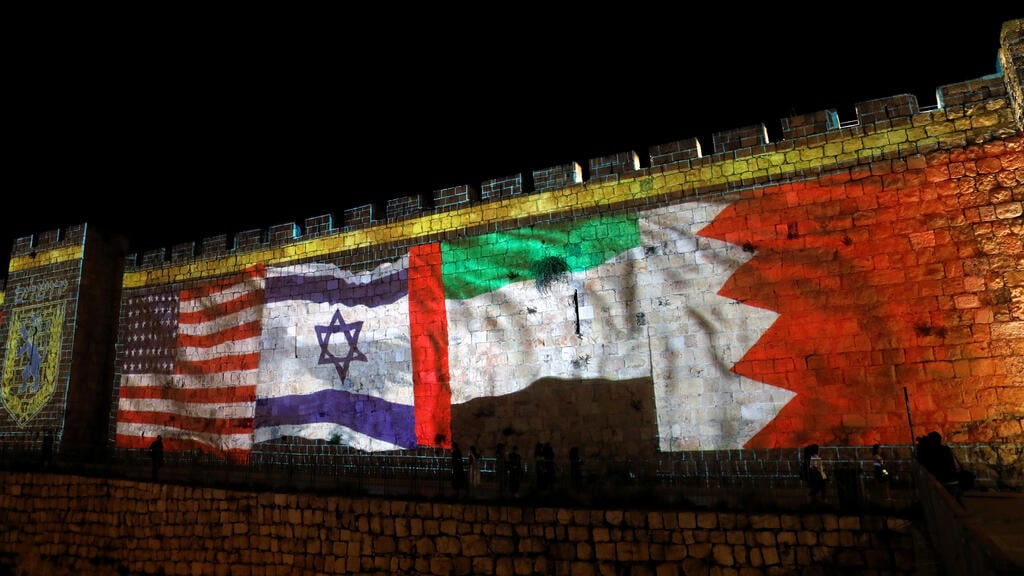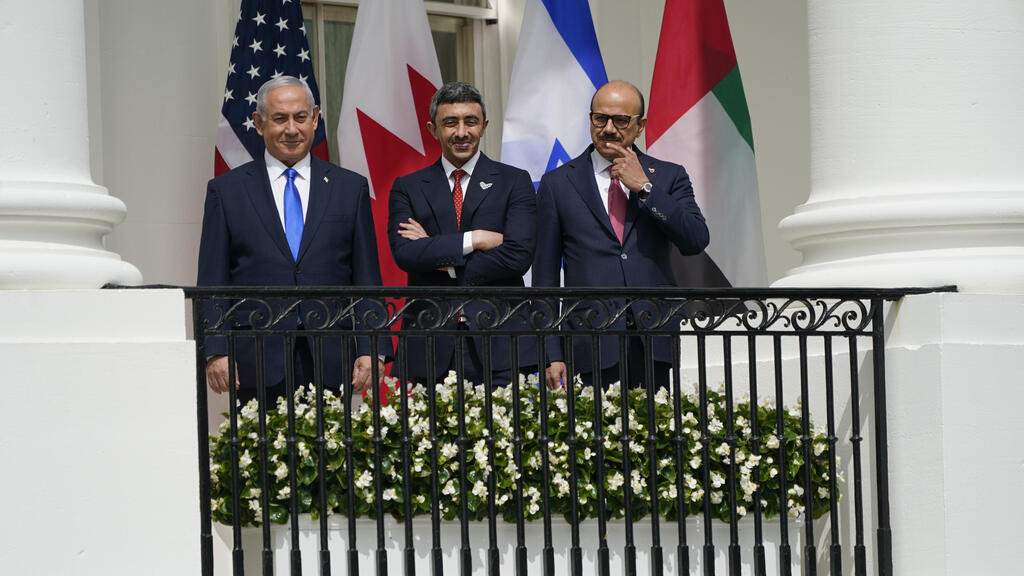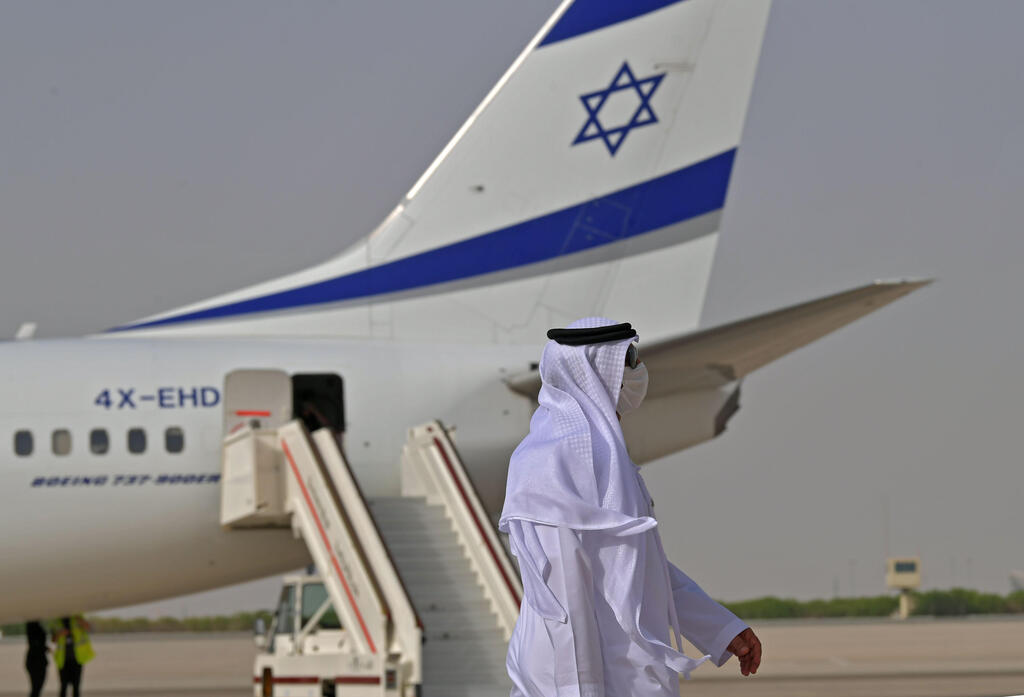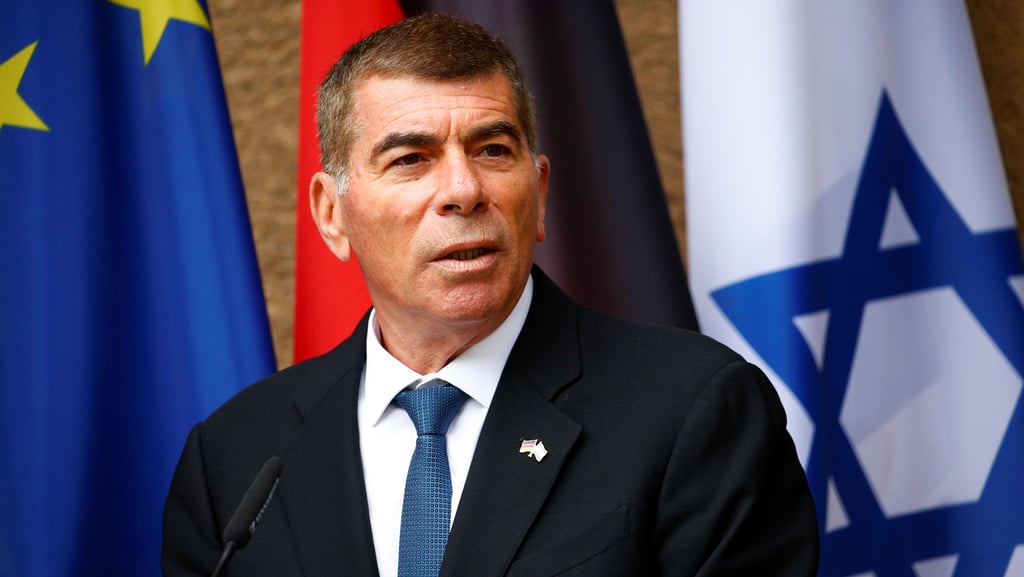Getting your Trinity Audio player ready...
This year was a year marred with political paralysis and over-saturated with three election rounds, yet it ended with a dramatic breakthrough - a normalization agreement with Bahrain and the United Arab Emirates.
This stupendous achievement - which does not fall short of the peace agreements signed with both Egypt and Jordan in 1979 and 1994 respectively - was led by Prime Minister Benjamin Netanyahu.
4 View gallery


The flags of the United States, Israel, United Arab Emirates and Bahrain projected on a section of the walls surrounding Jerusalem's Old City
(Photo: Reuters)
This achievement is also proof that there is a breath of fresh air blowing through the halls of Israel’s Foreign Affairs Ministry.
A tinge of Irony can be felt when talking about the Foreign Ministry’s achievement in regards to the agreements - since it was Netanyahu who brought on this international achievement, but it was also Netanyahu who effectively buried the ministry in prior years.
Netanyahu and his underlings - who have effectively become an alternative for the Foreign Ministry at some point - have worked meticulously for years to bury the ministry, and turn its diplomats into pale shades of their former professional selves.
They were regularly excluded, only exposed to any diplomatic developments through the media, and managed by the premier's trustees whose sole purpose was to appease the Netanyahu and his family.
4 View gallery


(L-R) Israeli Prime Minister Benjamin Netanyahu; Sheikh Abdullah bin Zayed bin Sultan Al Nahyan, Minister of Foreign Affairs and International Cooperation of the United Arab Emirates; and Dr. Abdullatif bin Rashid Alzayani, Minister of Foreign Affairs, Kingdom of Bahrain
(Photo: EPA)
However, the ministry was rejuvenated once Foreign Minister Gabi Ashkenazi took the helm and its staff experienced a professional renaissance akin to a phoenix rising from its ashes.
Both Ashkenazi and Defense Minister Benny Gantz were excluded from the agreement. Netanyahu actually compared them to the Iraninan threat, saying they would have torpedoed the agreements into oblivion if they knew about it sooner.
Despite this, both Gantz and Ashkenazi braved through the accusations, and sent Foreign Ministry Director-General Alon Ushpiz, together with a team of ministry diplomats, who took a key part in the talks with the UAE.
Another one of the ministry’s achievements was this year’s conference commemorating 75 years to the liberation of Auschwitz-Birkenau by the Russians. A conference which was orchestrated by President Reuven Rivlin together with the Yad Vashem Holocaust memorial museum.
The number of world leaders who partook in the event was astounding. No less than 45 diginiteries made their way to Israel to pay their respects, among them were Russian President Vladimir Putin, the king of Spain, and French President Emanuel Macron.
The Foreign Ministry built and lifted the whole event, taking care of all meetings and leaders' needs.
We can only hope this great momentum continues in the coming years.
If the the ministry's current leadership continues to lead a firm and responsible line of political work, it is possible that we will finally see an era of fresh and professional work in Israel’s foreign affairs.



